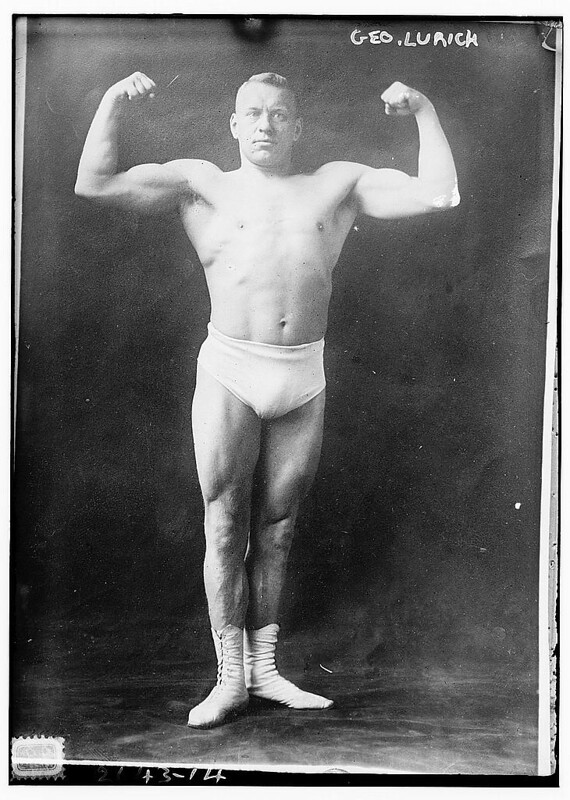THOMAS DUNBAR (5)
By:
January 29, 2023

Gertrude M. Barrows, who would later write under the pen name Francis Stevens, published “The Curious Experience of Thomas Dunbar” in The Argosy in 1904. She was nineteen; this was her first proto-sf story. It’s one of the earliest tales of a lab-created superman — and most likely the first such story by a female author. HiLoBooks is pleased to serialize it here for HILOBROW’s readers.
ALL INSTALLMENTS: 1 | 2 | 3 | 4 | 5 | 6 | 7 | 8.
By all precedent and reason my hands should have been crushed to a jelly in the maze of machinery, but to my intense astonishment the wheel stopped under my grasp with no very great effort on my part.
For a moment I held it so (it seemed to me to pull with no more force than is in the arms of a child), and then there was a loud report somewhere within the intestines of the monster, I saw a guiding rod as thick as my wrist double up and twist like a wire cable, things generally went to smash inside the engine, and the stamps stopped — not three inches from the man’s head!
And even as they ceased to grind, men came running in at the door on the farther side of the vats — they had had to go clean round the work-shop to reach it-and were at the top of the slide with a rope which they let down.
In a moment the fellow was drawn to safety out of the reach of as horrible a death as a man can die — death in a bath consisting largely of sulphuric acid!
I stood as one in a stupor, still grasping the eccentric, dazed by the suddenness of it all — hardly able to believe that the danger was over.
A touch on my shoulder roused me, and I turned to look down into the narrow eyes of Lawrence. He was gazing at me with something very like awe in his expression.
“Well,” I said, smiling shakily, “I’m afraid I’ve spoiled your engine.”
“Spoiled the engine!” he said slowly, but emphatically. “What kind of a man are you, Mr. Dunbar? Do you know that that is a three hundred horse-power Danbury stamp? That the force required to stop that wheel in the way you did would run a locomotive — pick up the whole mass of that engine itself as easily as I would a pound weight?”
“It stopped very easily,” I muttered.
For some ridiculous reason I felt a little ashamed — as if such an exhibition of strength were really a trifle indecent. And I couldn’t understand.
Of course, I thought, he exaggerated the power used, but though I am naturally quite strong, still I could, before my accident, boast of nothing abnormal — and was I not just up from a sick bed, only a moment ago barely able to stand or walk without support?
I found that I was nervously clenching and unclenching my hands, and became suddenly conscious that they felt as if they had been burned — the minute I began to think about it the pain became really excruciating.
I glanced at them. They were in a terrible condition — especially my right. They looked as if they had been clasped about a piece of red-hot iron.
“What is it?” asked Lawrence quickly. He bent over my hands, peering at them with his little black eyes.
Then he looked up quickly, and I saw the dawning of a curious expression in his wrinkled face — a strange excitement, a pale flash of triumph, I could have sworn.
Then, “Where is it?” he cried imperatively, his voice sharp and strenuous. “What have you done with it?”
RADIUM AGE PROTO-SF: “Radium Age” is Josh Glenn’s name for the nascent sf genre’s c. 1900–1935 era, a period which saw the discovery of radioactivity, i.e., the revelation that matter itself is constantly in movement — a fitting metaphor for the first decades of the 20th century, during which old scientific, religious, political, and social certainties were shattered. More info here.
SERIALIZED BY HILOBOOKS: James Parker’s Cocky the Fox | Annalee Newitz’s “The Great Oxygen Race” | Matthew Battles’s “Imago” | & many more original and reissued novels and stories.
